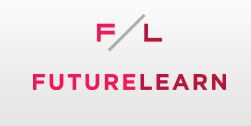

Martin Bean, VC, The Open University, UK talks about the scope of online education in India
Naief Khatri
IndiaEducation met up with Martin Bean, the Vice-Chancellor of The Open University, U.K. He was in India recently as part of the delegation accompanying the British prime minister, David Cameron, on his second visit to India in February 2013.
In an in-depth interview with IndiaEducation, Martin Bean spoke about The Open University’s latest venture to bring free, open and online courses to the world and especially India. In December 2012, The Open University launched “Futurelearn”, an independent private company owned in part by the OU, which is being partnered with the British Library and 17 U.K. universities. Futurelearn is the first U.K.-led, online platform that will make courses from U.K. universities and institutions available online for free. It aims to build further on the OU’s expertise in delivering distance learning and open education.
world and especially India. In December 2012, The Open University launched “Futurelearn”, an independent private company owned in part by the OU, which is being partnered with the British Library and 17 U.K. universities. Futurelearn is the first U.K.-led, online platform that will make courses from U.K. universities and institutions available online for free. It aims to build further on the OU’s expertise in delivering distance learning and open education.
We were later joined by Don Nutbeam, the Vice-Chancellor of the University of Southampton, one of the partner institutions of Futurelearn.
Q. What inspired the Open University to start Futurelearn?
Bean: The Open University has been a world leader in modern distance learning, a pioneer of teaching and learning methods since 1969. It was the world’s first successful distance teaching university, founded on the belief that communications technology could bring high quality degree-level learning to people who had not had the opportunity to attend traditional campus universities. We’ve always believed in using the technology of the day – one of our earliest partners was the BBC in the 1970s, who broadcasted our lectures. Then we reached out to a wider audience with peak-time BBC series on the television.
Then the Internet came along and disrupted the education sector, resulting in the Massive Open Online Courses (MOOCs), and the top universities in North America started giving away free educational content. Now we’ve been giving away content to everyone for the last 43 years. So we decided that as the technology evolves, the OU needs to evolve as well. Since we already have been extremely successful in free open education, Futurelearn aims to build on this expertise and offer an online learning platform to students around the globe.
Q. What inspired the Open University to start Futurelearn?
Bean: We’re the largest university in the U.K., the only university that teaches across the four nations, with 2,50,000 students and 49 percent of them have 1 A levels or less. The OU was recently named the U.K.’s number one university for student satisfaction in the National Students Survey 2012, beating Oxford and Cambridge. We use technology and deliver our education at a distance with none of the students on campus – yet our students are the happiest out of all the universities. To add to this, the U.K. has over 800 years of experience in higher education and is home to some of the top ranked universities in the world.
percent of them have 1 A levels or less. The OU was recently named the U.K.’s number one university for student satisfaction in the National Students Survey 2012, beating Oxford and Cambridge. We use technology and deliver our education at a distance with none of the students on campus – yet our students are the happiest out of all the universities. To add to this, the U.K. has over 800 years of experience in higher education and is home to some of the top ranked universities in the world.
Our offering – the MOOCs by Futurelearn, would focus on the quality of teaching and not on the quantity of students who sign up. It is frustrating sometimes when people try to define two different worlds – one of campus based/physical learning and the other of virtual/e-Learning. But what really matters is to take the best of both worlds and offer great teaching. It is all about great teaching, not physical or virtual teaching. And our partner universities, some of the best in the U.K. and the world – University of Bath, University of Birmingham, Bristol University, Cardiff University, University of Southampton and more – have committed to maintain their reputation for quality in what is being offered online, even if it’s free. We will be differentiating Futurelearn based on the quality of the student’s experience.
Nutbeam: The University of Southampton is one of the foundation universities of the Futurelearn with the OU. In fact, some of the leading research universities of U.K. are part of this initiative. None of us have any idea where this is going to take us. This is a genuinely disruptive experiment with higher education. We all have committed to try and offer a genuinely rich experience that reflects the kind of experiences you will get if you’re in a campus. Some of the really early starters in the MOOCs (not all, some are really great) seem to have compromised on the quality they offer.
Q. What inspired the Open University to start Futurelearn?
Bean: You can’t escape infrastructure challenges. But remember- we are also experts at being able to deliver education through mobile devices of all types- tablets, smart phones. Since I’ve always been involved with technology in education, I’m aware of the limitations but also realise that they somewhat become self-healing. If I talked to you five years ago, we never would have dreamt that the tablets’ penetration would have been where it is now, we never would have dreamt that Aakash-like devices would be lowering the cost of those tablet devices. If we look at the usage of Facebook in India, not only in tier one cities, but in tier two, three cities, people access it through their mobiles, through Internet cafes – people will find a way, if they see there is value. In fact, I believe we’ll be terrific not in tier one, but more in tier two and three cities and we plan on making maximum use of technology to achieve this.
The world is moving on from thinking of higher education as ”brick and mortar” to really being ”click and mortar.” Universities that have a future, no matter what their mode of delivery, are the ones that actually realise that they should be blending online and campus experiences and making the most of it.
Q. What is the scope and potential for online and distance learning in India?

Bean: The world simply cannot build enough universities to satisfy the demands for higher education. India in particular, needs an additional 40 million university seats to educate its young citizens. Logic dictates that alternative models of education are necessary.
And the open online courses would be well received by the Indian students. We were at a women’s college in Delhi University with David Cameron, the prime minister and when we got talking about Futurelearn, we got first hand reaction – spontaneous applause broke out in the room. You could just tell that they got it right away and that they loved the idea. They were thrilled at the concept of another wonderful place to get access to the terrific supplementary higher education resources. We were asked at least seven times if the courses were really free! Because it does look too good to be true – and that’s why the idea is so disruptive in the first place.
Q. Online education and online courses often face credibility and quality issues. Employability and job placements are one of the top concerns for most Indian students. Are MOOCs ready for this?
Bean: A student goes through a free course and at the end, he’ll have to clear some sort of assessment. He can take a print out of this paper – in many markets that I have worked in the world, this could be life changing for the individual in the minds of the employer. Similarly, at the end of some courses, you could go to a testing centre and take the assessment in the presence of an invigilator and get a more formal score report- again for many industries/employers – this is quite a valuable achievement. I know in a lot of markets, employers only value an undergraduate or postgraduate degree – but that is not how the world works. This is another disruption required in higher education. I think employers need to make up their own mind about the value of these completion certificates. I feel there is more value to them than we realise now.
Nutbeam: Yes, this could be part of the disruption. It may well be the future – that employers are looking for portfolios or achievements rather than a degree.
Q. Futurelearn will be partnering with a host of universities. How will that work?
Bean: Apart from the 17 partner universities, I am delighted to announce that recently, the British Library has also decided to join us and help us develop our online courses with the help of their rich and exceptional digital archives. Our partner universities are among the best in the U.K. Futurelearn is meant to be a celebration of learning, and real learning should not be restrained by the course and the university. You should be able to roam around and look at other areas, courses, universities.
Nutbeam: Traditionally, the universities have always drawn the students to them. Now, the universities are going out to the students. So partnering with The Open University and Futurelearn is absolutely fundamental to our motto of taking Southampton to the world instead of asking the world to come to us. So the best universities in the world are going the way of the best businesses in the world – becoming more global – travelling across countries, becoming multinationals.
Please note: Unless explicitly stated otherwise, any job outlook predictions, career/educational advice, and salary information found on this page are based solely on the opinion of the interviewee and not that of IndiaEducation.net or any other organization.
Other Interviews
- Animator & Film Maker, Kireet Khurana
- Interviews
- CAT 2016 Topper Interview
- Future of MBA in India: Dr. Kashi Balachandran, Glocal School of Business
- GRE 2013 Topper, Ashwini Nene
- Himanshu Aggarwal, CEO, Aspiring Minds
- M.C. Pant,Chairman,National Institute of Open Schooling
- MBA in Sports Management with an International Internship in Australia
- Rajesh Balasubramanian, CAT 2012 topper

About Nishatha Abraham Bijeesh

Latest
Articles
CBSE Compartment Result 2023 OUT: Click For Direct Link
Home CBSE Compartment Result 2023 OUT: Click For Direct Link The CBSE 10th Compartment Result 2023 is expected to be
IIT Roorkee Launches Professional Certification Program in Product Management
Home IIT Roorkee Launches Professional Certification Program in Product Management The fees five-month long programme is for Rs 1,40,000 +
Join Our Whatsapp Community
Lorem ipsum dolor sit amet, consectetur adipisicing elit, sed do eiusmod tempor incididunt ut labore et dolore magna aliqua. Ut enim ad minim veniam, quis nostrud







